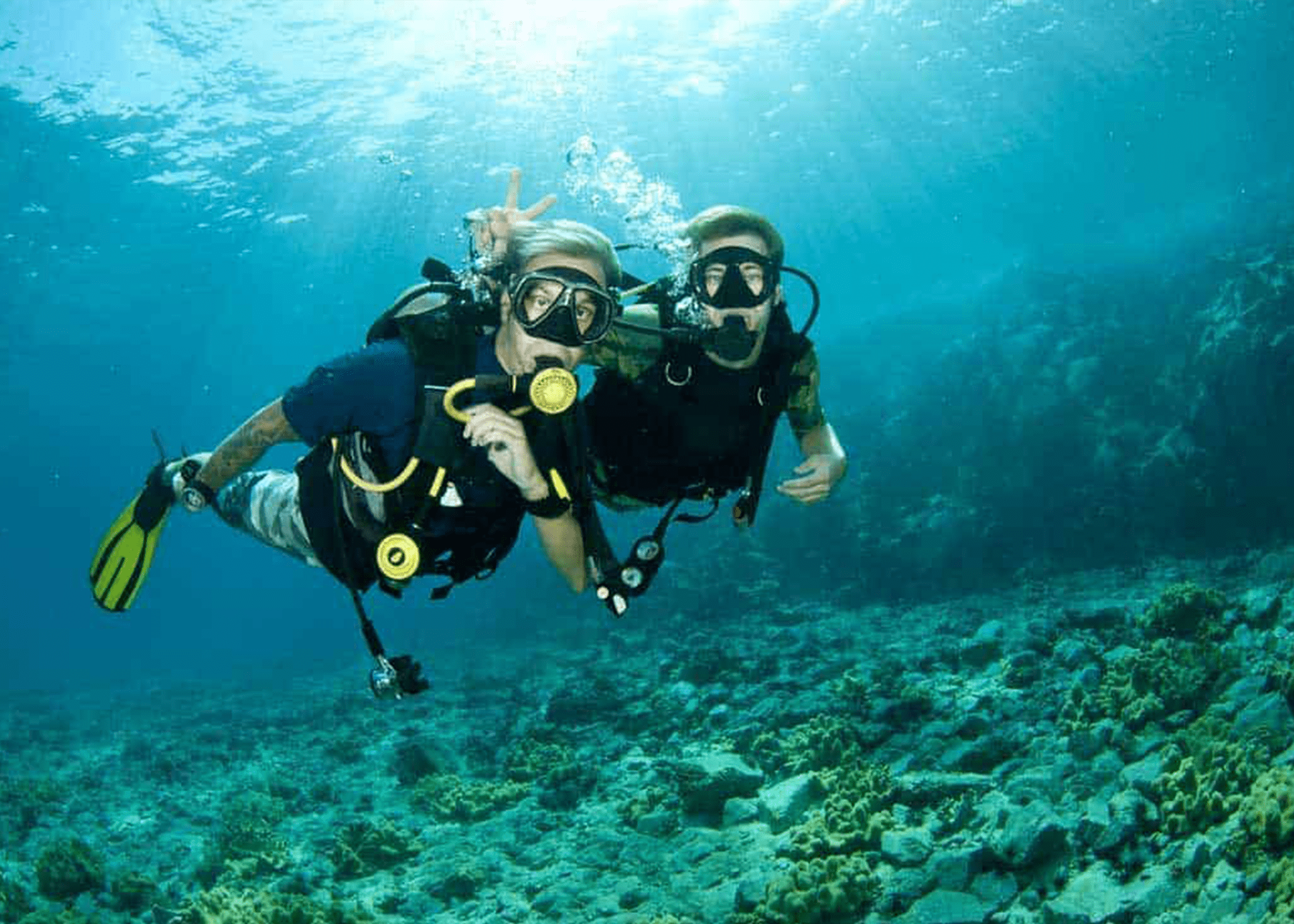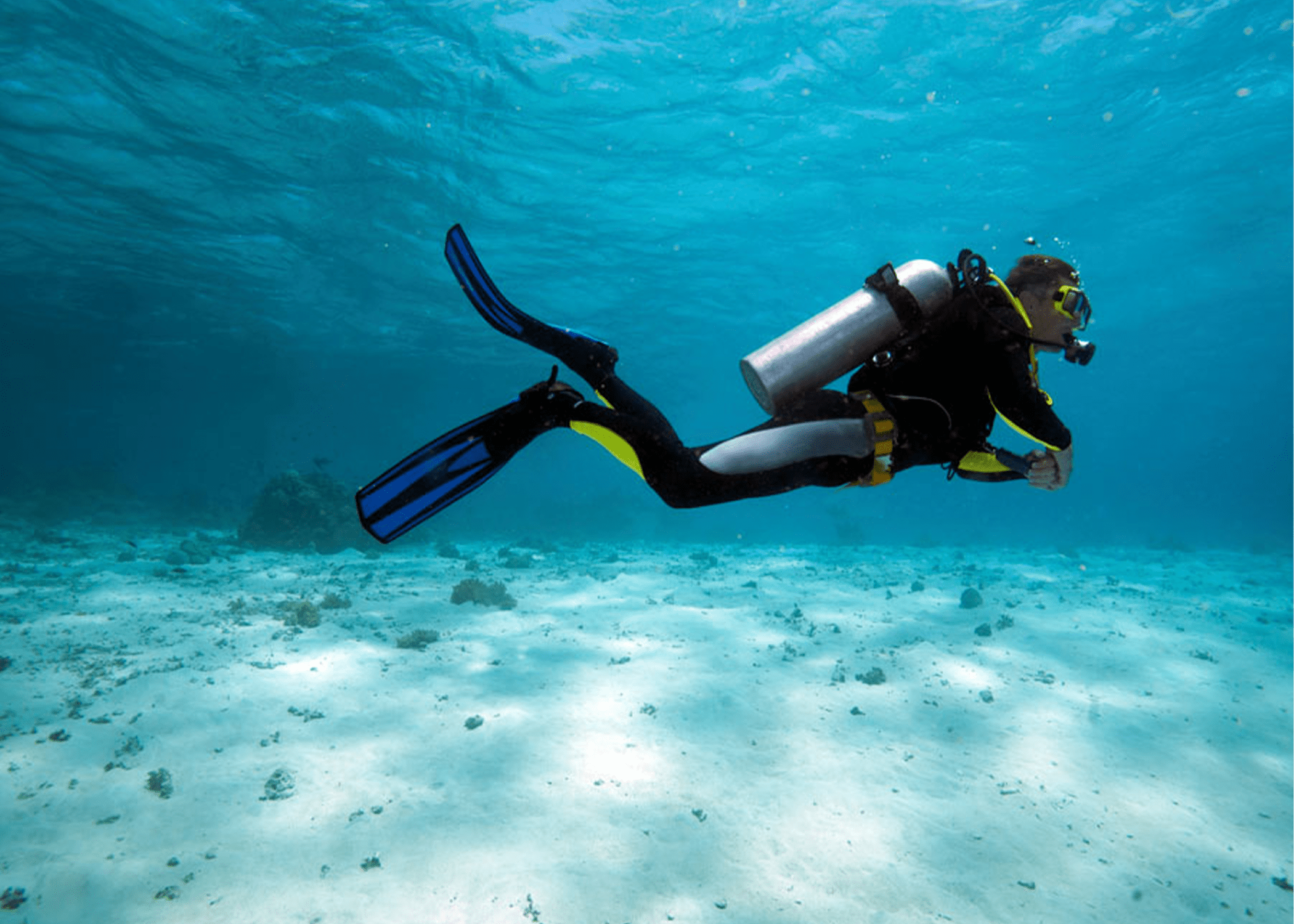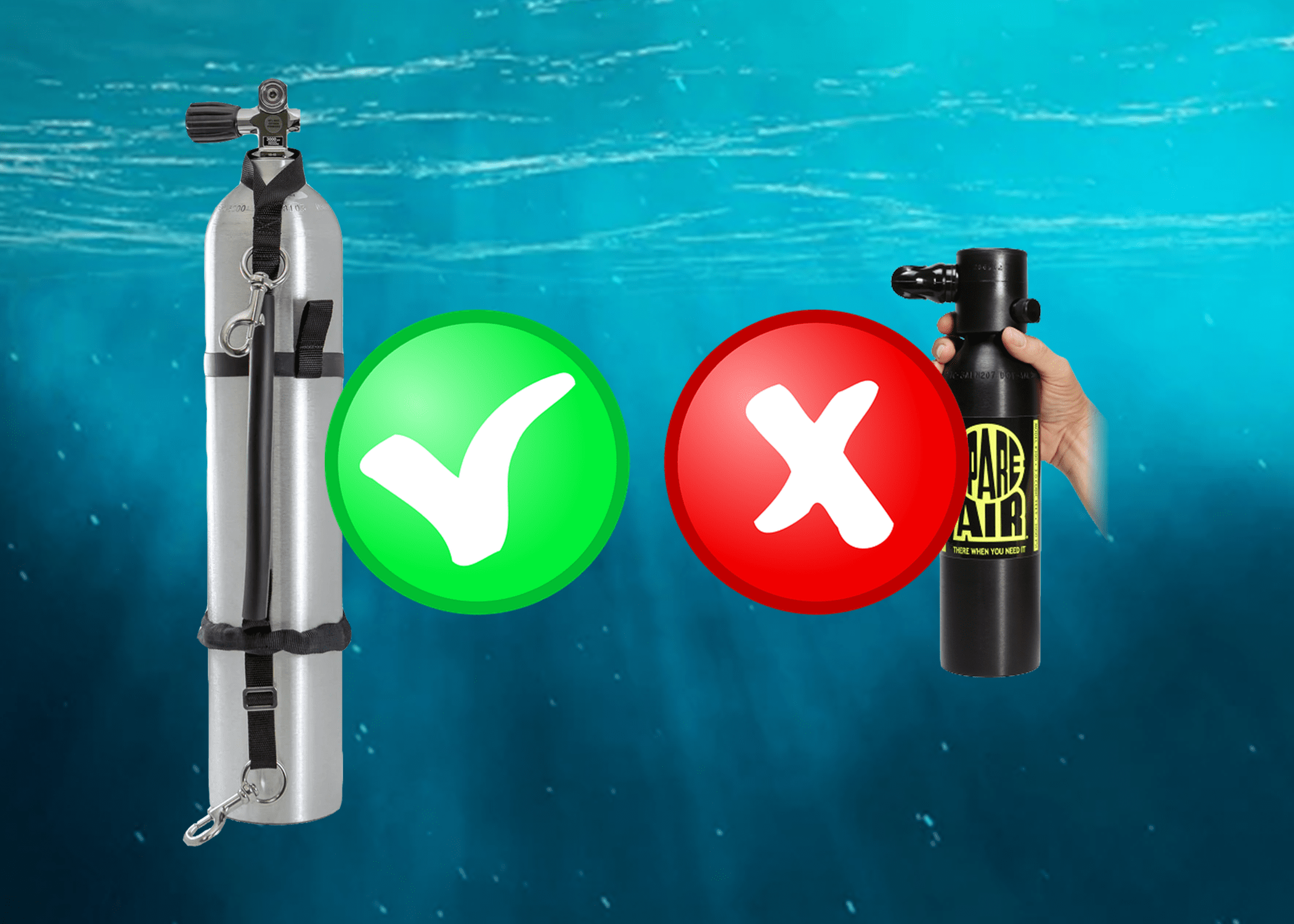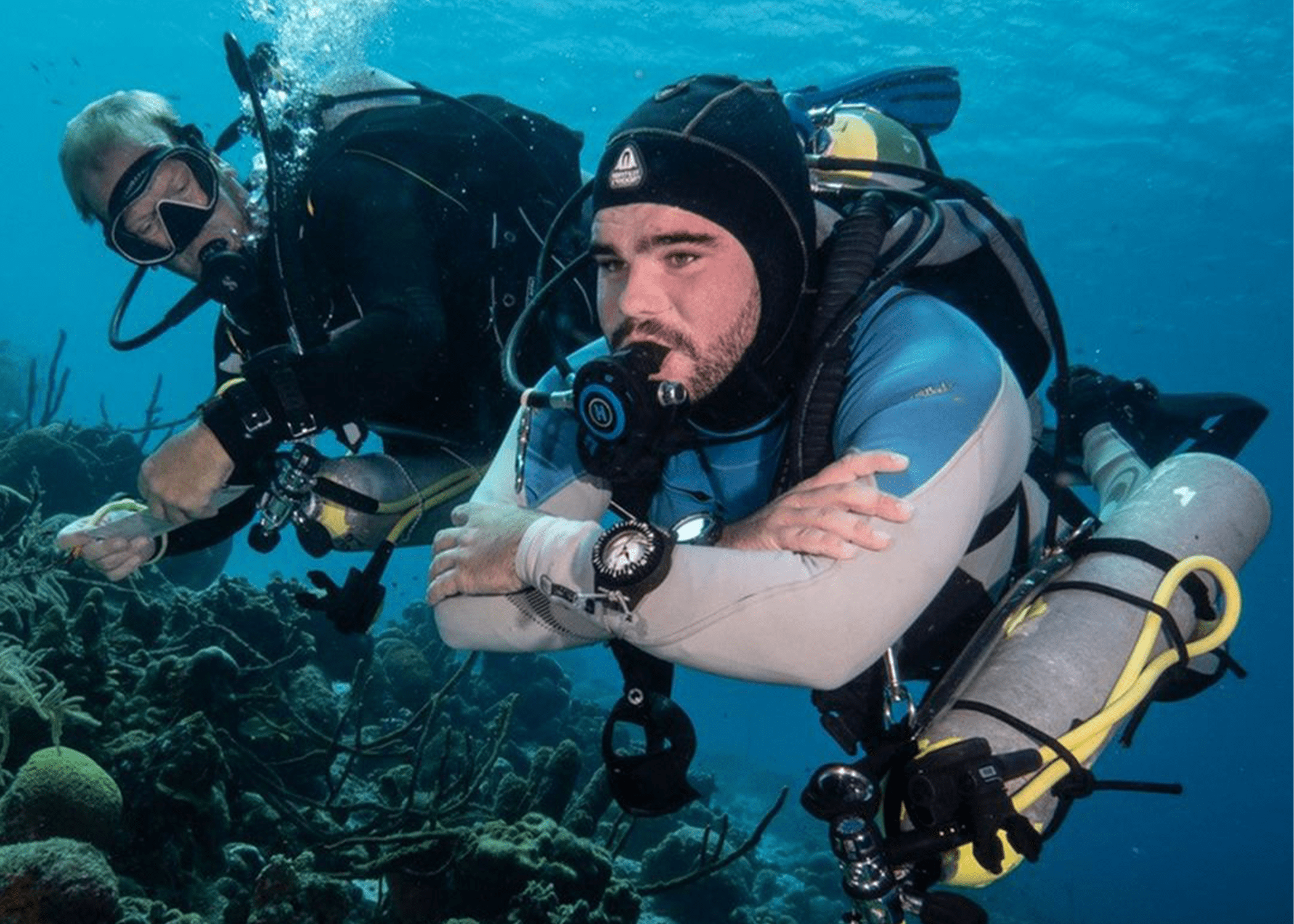The Importance of Self-Reliance
The buddy system. The Buddy System. THE BUDDY SYSTEM! Outside of “never hold your breath!,” no scuba concept has been drilled into your head from Day 1 of Open Water training more than using the buddy system. Always do a pre-dive safety check (BWRAF) with your buddy, never dive without a buddy, practice gas sharing with your buddy, you and your buddy should never be more than a 2-second swim away from each other, etc., etc. Sound familiar? And while these are all very sound concepts in theory, as well as good ideas in practice, how realistic are they?
How many times have you been diving with your favorite dive buddy, found an interesting critter to show him/her, turned to show it to…….where’d he go?? Not only was he not within a “2-second swim,” he was more like 100 feet thataway looking at another interesting critter to show you. Did you think to yourself, “Well, if I had needed my buddy for some emergency, I’d have been in trouble?” I imagine it’s probably more times than you can count. Perfect example: my wife is not only my favorite person, she’s my favorite person to dive with. She’s a very skilled diver and loves the underwater environment as much as I do. Is she a “good dive buddy?” Nope! Why? She’s an avid underwater photographer. When she sees that magic whatever in her viewfinder, it becomes the focus (no pun intended) of her world for a few minutes. Most of our dives, I don’t even need to look. I just KNOW she’s nowhere near me. It’s not her fault either! That’s just what she loves to do. If any of you dive with a photographer buddy, you know exactly what I’m saying.
For this reason, and many others, it’s so very important for you to be self-reliant in your dive practices. What constitutes being self-reliant? In short, it means that, in the event of any of the most common dive emergencies, you can get yourself safely out of trouble without relying on the proximity/skill/preparedness of your dive buddy. These emergencies could be low- or out-of-gas, entanglement, getting lost from the group, or even a broken mask strap.
Self-reliance is about knowledge, preparedness, and redundancy. Knowledge, in this case, is knowing you and the way you dive. One of the most notable among these is gas consumption. Can you easily finish a one-hour dive along the reef with gas to spare, or are you usually the air hog who’s the first to get back on the boat? Knowing your actual SAC rate (surface air consumption) gives you the advantage of knowing your strengths and weaknesses regarding gas usage. This can be figured out relatively easily with not much more than an underwater slate and timing device. Preparedness is planning for both the expected AND the unexpected. A good example of the expected would be the gas consumption just mentioned. If you are the air hog (and you DON’T want to be first back on the boat), taking a pony bottle along might be the fix for you. Getting separated from your dive group or buddy is certainly unexpected but something that happens quite often. Skill in navigation and the proper use of a DSMB (delayed surface marker buoy) can be literal life savers in these instances.
Redundancy, then, is having the right tools on you, and enough backups, to handle both the expected and unexpected things you prepared for, based on your knowledge of yourself and the dive. Had a mask strap break on you before and don’t want to deal with that mess again? Carry a spare! Modern frameless masks will fold up virtually flat and unobtrusively in a BC or thigh pocket. Diving somewhere that fishing line or nets may present an entanglement hazard? One, never dive without a cutting tool unless prohibited by local ordinance, and two, carry a backup or two! That samurai sword on your leg isn’t any good to you if you drop it trying to cut yourself free or if that particular leg is the thing that’s entangled. There’s a great old military adage that says, “One is none, two is one, three is two, etc.” With regard to redundancy, it means that any piece of gear that is vital for either survival or the completion of the mission (in this case, the dive plan) should have a backup. Now, does this mean you need to dive looking like a Christmas tree with doodads dangling all over you? Absolutely not. It means, use your knowledge to prepare for each individual dive, and base your redundancy on those factors. Get the theme there?
Want to beef up your knowledge, preparedness, and redundancy to be a more self-reliant diver? Well, then take the PADI Self-Reliant Diver course! You’ll need to have your Advanced Open Water certification and 100 logged dives as prerequisites, but you’ll be amazed at the amount of information and confidence you’ll walk (or swim) away with. Although some salty ol’ divers like to say that “every dive is a solo dive,” the purpose of this course isn’t to encourage you to dive alone. Rather, it’s to train and prepare you for “that time” when you may find yourself in a pickle without a buddy close by to render assistance.
Until next time, never stop learning, never settle for “good enough,” and stay sharky, my friends!
What do I do when the system breaks down?

The Buddy System
You’ve been trained to use the buddy system from Day 1 of the Open Water course. For it to work effectively, however, your buddy has to be quite close to you. How often is THAT true?

Reality, Quite Often...
It doesn’t take long. Look at this coral head for a minute, or take a few pictures of a pretty fish, then look up and find your buddy, or the whole group, far away. While not technicaly “alone,” you’re certainly out of timely reach in the event of an emergency. Can you even remember how many times that’s been you?

Do Backups Right!
Just say “NO” to Spare Air. In the author’s opinion, most of them simply offer a false sense of security with only enough gas volume to get you seriously hurt. If you carry a backup gas supply, carry a real one. In most cases, an AL30 or AL40 holds enough gas for you to ascend at a safe rate and still do a comfortable safety stop. When rigged properly, they can be carried very close to the body without negatively affecting your trim or buoyancy.

Become Self-Reliant!
Learn how to get yourself out of most jams without having to rely on others who may or may not be there when you need them. If you have your AOW certification and 100 logged dives, you qualify for the PADI Self-Reliant Diver course. Contact us about upcoming classes!


